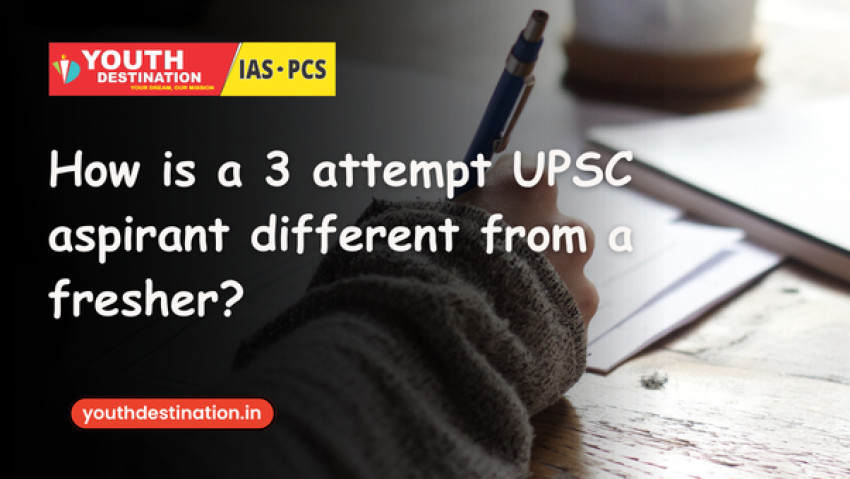
In the challenging landscape of UPSC preparation, there exists a distinct contrast between a three-attempt UPSC aspirant and a fresher. The UPSC Civil Services Examination is a rigorous test that requires not only subject expertise but also strategic preparation. As we delve into the nuances of this comparison, we unravel the unique characteristics that set these two categories of aspirants apart.
1. Experience and Insights
A three-attempt UPSC aspirant stands out due to their experience in facing the intricate UPSC examination process. Having undergone the rigorous cycle of preparation, appearing for the Prelims, Mains, and facing the Interview, they have accumulated valuable insights. These insights encompass a deep understanding of the exam pattern, the kind of questions that are usually asked, and the critical areas that demand focused preparation. On the other hand, a fresher is stepping into uncharted territory. Their lack of exposure to the intricacies of the exam may necessitate a longer time to adapt and grasp the nuances.
2. Strategic Planning
The process of preparing for the UPSC exam demands strategic planning and meticulous time management. A three-attempt aspirant has typically fine-tuned their study schedule over multiple attempts. They've learned from their past experiences, knowing what subjects to prioritize, how to allocate time effectively, and when to revise. In contrast, a fresher might need more time to figure out an effective study strategy that aligns with their strengths and weaknesses.
3. Subject Proficiency
A recurring attempt at the UPSC exam equates to diving deeper into the subjects and syllabus. A three-attempt aspirant often demonstrates a higher level of subject proficiency due to their continuous engagement with the material. This enables them to tackle complex questions with a more comprehensive understanding. A fresher, while enthusiastic, might need more time to reach that level of mastery.
4. Handling Pressure
The UPSC journey is synonymous with pressure and stress. A three-attempt aspirant has already tasted the pressure of the exam environment, and with each attempt, they've learned to manage it better. They've faced the intense competition, time constraints, and the weight of expectations. This experience gives them an edge in terms of mental preparedness. For a fresher, handling such immense pressure can be a daunting task, requiring time and exposure to adapt.
5. Resource Management
With multiple attempts, a seasoned aspirant has honed their resource management skills. They know which study materials are reliable, which sources to refer to, and where to find relevant current affairs. A fresher, on the other hand, may find themselves grappling with an overload of resources and information, unsure of which ones to prioritize. This distinction showcases the practical advantage that experience offers.
6. Revision and Retention
The power of revision cannot be underestimated in the UPSC journey. A three-attempt aspirant is well-versed in the art of revisiting and retaining information effectively. They've developed strategies to reinforce their memory, which can significantly enhance their performance. A fresher may still be in the process of discovering the most effective revision techniques, making their learning curve slightly steeper.
Conclusion
In the realm of UPSC preparation, the journey of a three-attempt aspirant and a fresher takes divergent paths. The former benefits from experience, strategic planning, subject proficiency, pressure management, resource utilization, and efficient revision techniques. On the other hand, the latter embarks on a voyage of exploration, adapting to the rigors of the exam. While both categories possess their unique strengths, it is the amalgamation of these attributes that defines the dynamism of the UPSC aspirant community.


